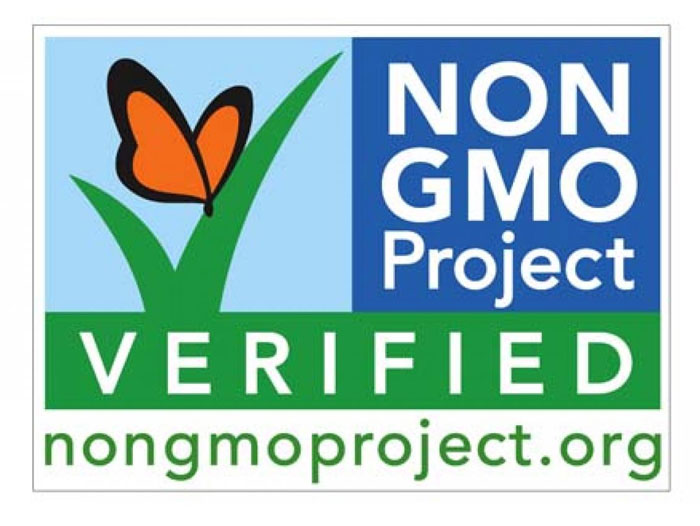Non-GMO Project Stands with Straus Family Creamery, Other Dairy Farmers, as Synbio Milk Accelerates
June 3, 2022 | 3 min to read

BELLINGHAM, Wash. – During June Dairy Month, the Non-GMO Project joins American dairy farmers in calling out synthetic dairy, which is quietly appearing in grocery store coolers throughout North America.
In recent years, “animal-free” dairy proteins have found their way into everything from ice cream to cream cheese to snack bars, but many shoppers, food manufacturers and retailers are unaware that these are actually unlabeled and unregulated GMOs.
“Synbio dairy products are GMOs because they are created by genetically engineering a microbe like yeast to excrete milk proteins,” said Megan Westgate, founder and executive director of the Non-GMO Project, North America’s most relied-upon non-GMO authority. “That’s the definition of unnatural.”
The synbio process forces cells to produce novel proteins that mimic natural ingredients like casein and whey. The possible risks include:
- Significant biohazardous waste.
- The accidental release of new GMOs into the environment.
- Continued reliance on fossil fuels for GMO growth media and the incineration of waste.
Synbio dairy could also put traditional dairy farmers and farmworkers out of business.
The synbio dairy industry is rapidly expanding with a significant infusion of investment. According to the biotech industry’s Good Food Institute, nearly $2 billion has been invested in developing “precision fermented” products like synbio dairy in the past year alone.
“GMOs pose a threat to the land, environment, and family farms, and I don’t think GMOs have a place in our farming and food system,” says Albert Straus, Founder/CEO of Straus Family Creamery. “As the first Non-GMO Project Verified Creamery in North America, we are committed to organic farming.”
Straus adds, “Organic farming practices protect the environment, address animal welfare, build soil health and provide nutritious food while revitalizing rural communities. Organic dairy farming and milk production are the foundation for a carbon-neutral dairy farming model that we’ll achieve on my farm by 2023.”
The Non-GMO Project is launching a first-ever, dairy-focused campaign during National Dairy Month to bring awareness to the agricultural and environmental threat of synbio dairy. An industry webinar, consumer education, and media kit for brands and retailers will support the June campaign, “How Do You Milk a Microbe?” The campaign asserts that natural, organic and non-GMO dairy is better than synbio dairy for consumers, farmers, and the planet. Research shows that natural and traditional dairy, produced regeneratively, can sink carbon into the ground while building biodiversity and healthy soils.
Manufacturers of synbio dairy also claim to be pro-climate, but the evidence is slim. “Given that their patents reference the need for large amounts of feedstock, it’s clear the industry is just ramping up demand for more GMO seed and cheap GMO crops. This reinforces the loss of biodiversity through monocultures and pesticides, while reducing the vitality of our rural communities by concentrating wealth in corporations, ” warns Alan Lewis, Vice President at Natural Grocers. “The dependence on petrochemical fertilizers and tillage releases tremendous amounts of carbon into the atmosphere. The same cows that synthetic biology wants to replace with ‘sustainable’ fermentation vats are actually critical to recapturing carbon via healthy pasture lands.”
On June 16 at 10 am PST, the Project will host an industry webinar [register here], including Megan Westgate, Albert Straus, Alan Lewis and Errol Schweizer, author, journalist and former leader of the national grocery program at Whole Foods Market. Panelists will share insider insights on synbio dairy and address questions regarding misleading synbio dairy claims.
The Non-GMO Project is a nonprofit organization committed to preserving and building sources of non-GMO products, educating consumers and providing verified non-GMO choices. As the market leader for GMO avoidance, the Project offers North America’s most rigorous and trusted third-party verification for non-GMO food and products.
